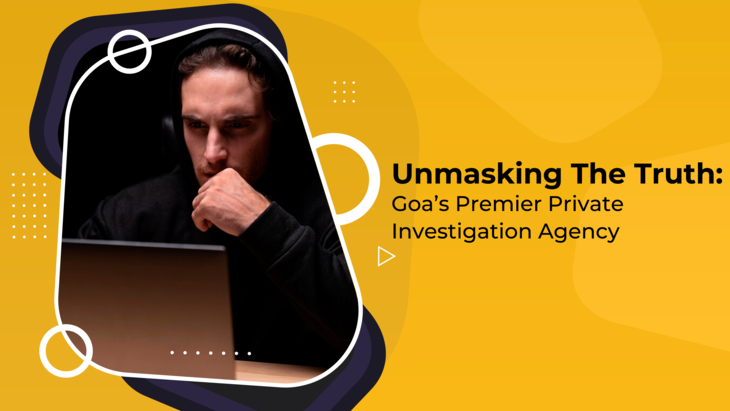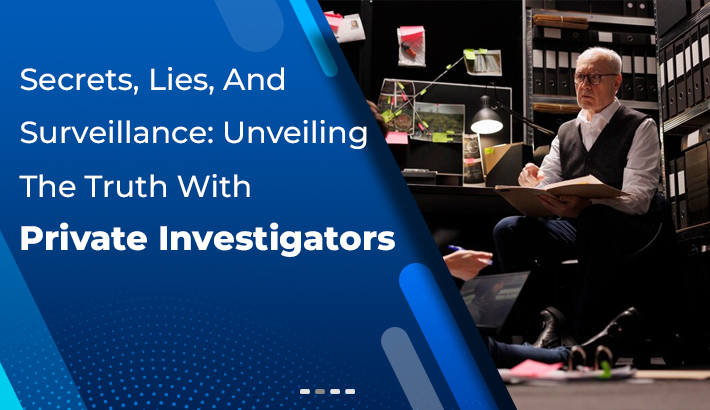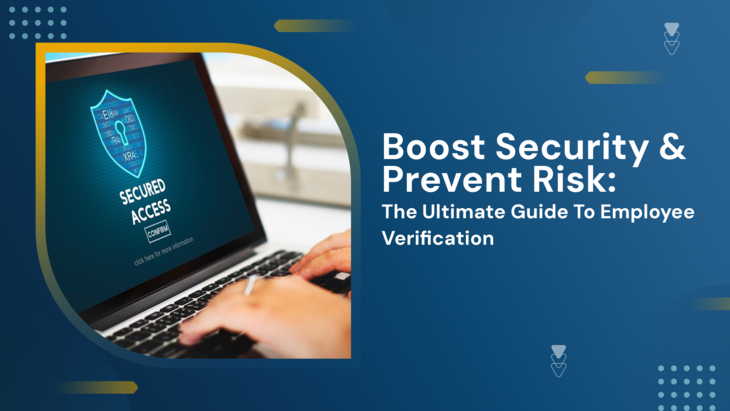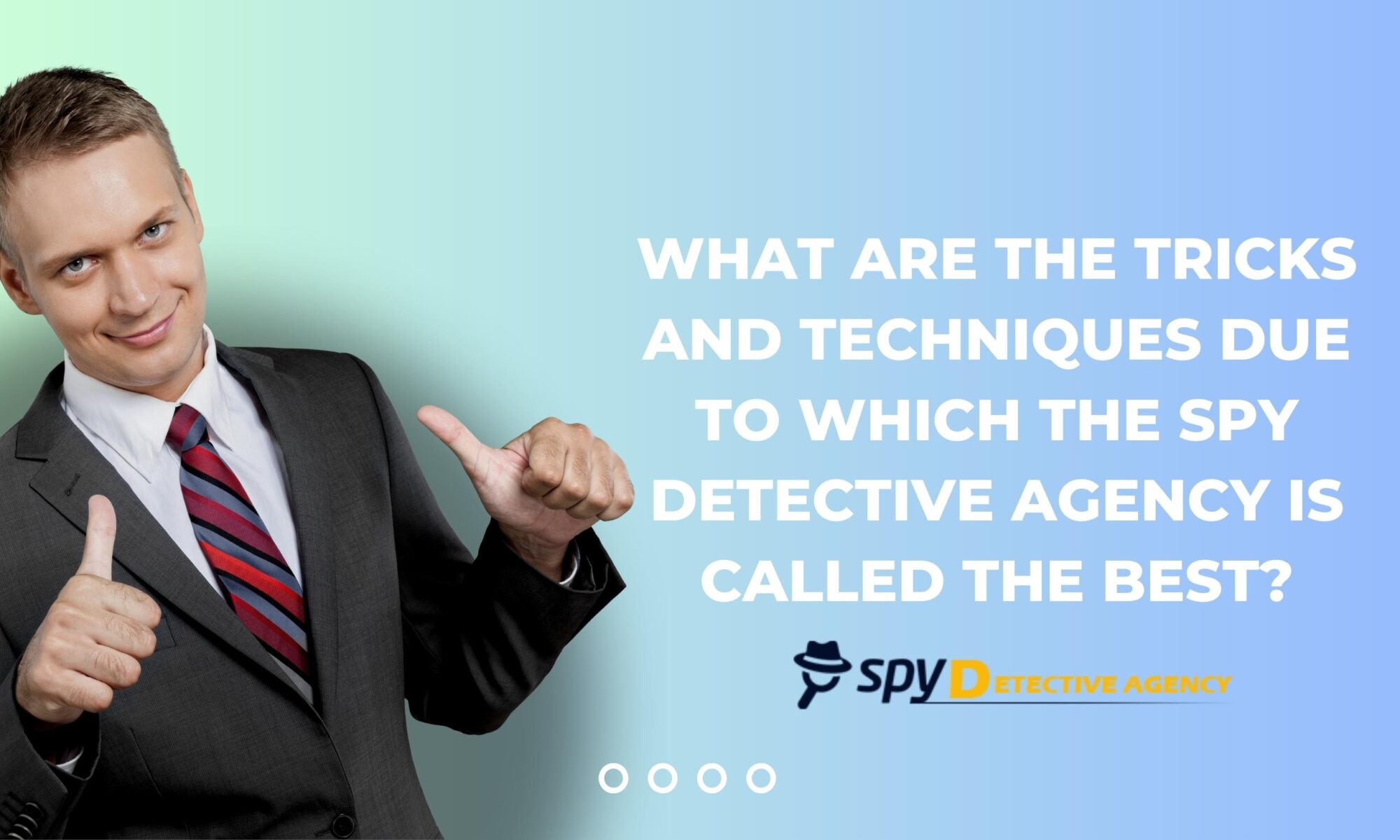Living in one of India’s evolving megacities like Surat, which is in the western Indian state of Gujarat, can never be a plain sail. Whether it is fear for hire or desire to gather information that may prove terrible, sometimes in life people go above their standard and seek the help of a detective. This is where a private investigator in Surat enters to engage in a tactful and efficient method of investigating for facts.
However, when would you say is the appropriate time to hire a private detective in Surat? Here’s a breakdown of the top reasons why you might find their services invaluable:
1. Personal Investigations: Seeking Clarity in Relationships
- Pre-marital and Post-marital Investigations: When embarking on a new chapter with someone, ensuring compatibility and transparency is crucial. A private detective can discreetly investigate a potential spouse’s background, verifying details like education, employment, and even past relationships. This empowers you to make informed decisions about your future. Similarly, in existing marriages, infidelity suspicions can be a nagging concern. A detective can conduct covert surveillance and gather concrete evidence, allowing you to confront the situation with clarity.
- Missing Persons: The disappearance of a loved one is a harrowing experience. When the police investigation seems to stall, a private detective can take a fresh look. Their experience in tracing missing persons, leveraging resources and networks, can be a beacon of hope in a difficult time.
- Child Custody Investigations: During child custody disputes, a detective can investigate a parent’s lifestyle, habits, and overall suitability to care for the child. This information can be crucial in presenting a strong case in court.
2. Business Investigations: Protecting Your Interests
- Employee Theft and Fraud: Internal theft and fraudulent practices can significantly impact a business. Private detectives, with their expertise in surveillance and forensic analysis, can uncover employee misconduct, gather evidence, and provide a clear picture of the situation.
- Background Checks: Hiring the right people is essential for a company’s success. A detective agency can conduct thorough background checks on potential employees, verifying their qualifications, employment history, and even criminal records. This helps you build a trustworthy and reliable workforce.
- Competitive Intelligence: Understanding your competitors’ strategies is key to staying ahead in the game. A private investigator in Surat can discreetly gather information about competitor activities, market trends, and potential product launches, providing valuable insights to inform your business decisions.
- Corporate Due Diligence: Before a merger or acquisition, it’s vital to understand the financial health and legal standing of the other company. A private detective can conduct due diligence investigations, uncovering any hidden liabilities or potential risks, and ensuring you make informed business choices.
3. Legal Issues: Gathering Evidence for Your Case
- Civil Disputes: In property disputes or other civil matters, evidence is crucial for a successful outcome. A private detective can investigate the case, locate witnesses, and gather relevant documentation, strengthening your legal position.
- Insurance Fraud: When facing an insurance claim denial, a detective agency can investigate the case, gather evidence to prove the legitimacy of your claim, and support your negotiations with the insurance company.
4. Peace of Mind: Invaluable in Uncertain Times
Sometimes, a nagging suspicion or a lingering question can take a toll on your mental well-being. Hiring a private detective allows you to delegate the investigation, freeing yourself from the emotional burden and the time commitment it may demand. Their professional approach can bring much-needed peace of mind, allowing you to focus on other aspects of your life.
Choosing the Right Private Investigator in Surat
With a growing demand for private investigation services in Surat, numerous detective agencies have emerged. Here are some key factors to consider when making your choice:
- Reputation and Experience: Look for a well-established agency with a proven track record of success in cases similar to yours.
- Licensing and Accreditation: Ensure the agency is licensed and operates legally, adhering to ethical guidelines and data privacy regulations.
- Expertise and Specialization: Choose an agency with investigators experienced in handling your specific type of case.
- Confidentiality and Discretion: Absolute confidentiality is paramount. Ensure the agency prioritizes client privacy and has robust data security practices.
- Cost and Transparency: Discuss fees upfront and ensure a clear breakdown of services included. Transparent pricing builds trust and avoids surprises.
Key Advantages of Hiring a Private Investigator in Surat
Discreet and Confidential Investigations: Private investigators operate with utmost discretion and confidentiality. Whether it’s a premarital background check or an infidelity investigation, they ensure that their activities do not attract undue attention, protecting your privacy and maintaining the confidentiality of sensitive matters.
Access to Specialized Resources and Expertise: Private detectives have access to a range of specialized resources and databases that are not readily available to the general public. Their expertise in using these tools enables them to uncover hidden information and verify details that might be difficult to obtain otherwise, such as verifying a potential spouse’s background comprehensively.
Professional Surveillance and Evidence Gathering: In cases of suspected infidelity or child custody disputes, professional surveillance by a private detective can provide concrete evidence. Their training and experience in covert operations ensure that they can document activities without being detected, thereby collecting reliable evidence that can be crucial in court or personal decision-making.
Independent and Unbiased Investigations: Private investigators provide an independent perspective, free from biases or preconceived notions. This objectivity is especially important in emotionally charged situations like child custody battles or missing person cases. They focus solely on gathering facts and evidence, which can help present a clear and unbiased view of the situation.
Efficiency and Persistence: Private investigators are dedicated to their cases and can often pursue leads and conduct investigations more persistently than overburdened public law enforcement agencies. In missing person cases, where police resources may be stretched thin, a private investigator can provide focused attention and a fresh perspective, increasing the chances of finding the missing individual.
Conclusion
Private detective agency in Surat play a vital role in uncovering truths that might otherwise remain hidden. Whether you’re facing a personal dilemma, a business challenge, or a legal hurdle, their expertise and experience can be invaluable. By choosing the right agency and outlining your needs clearly, you can embark on a path towards finding the answers you seek and achieving peace of mind. Remember, a private detective can be a powerful ally in navigating life’s complexities in Surat.











